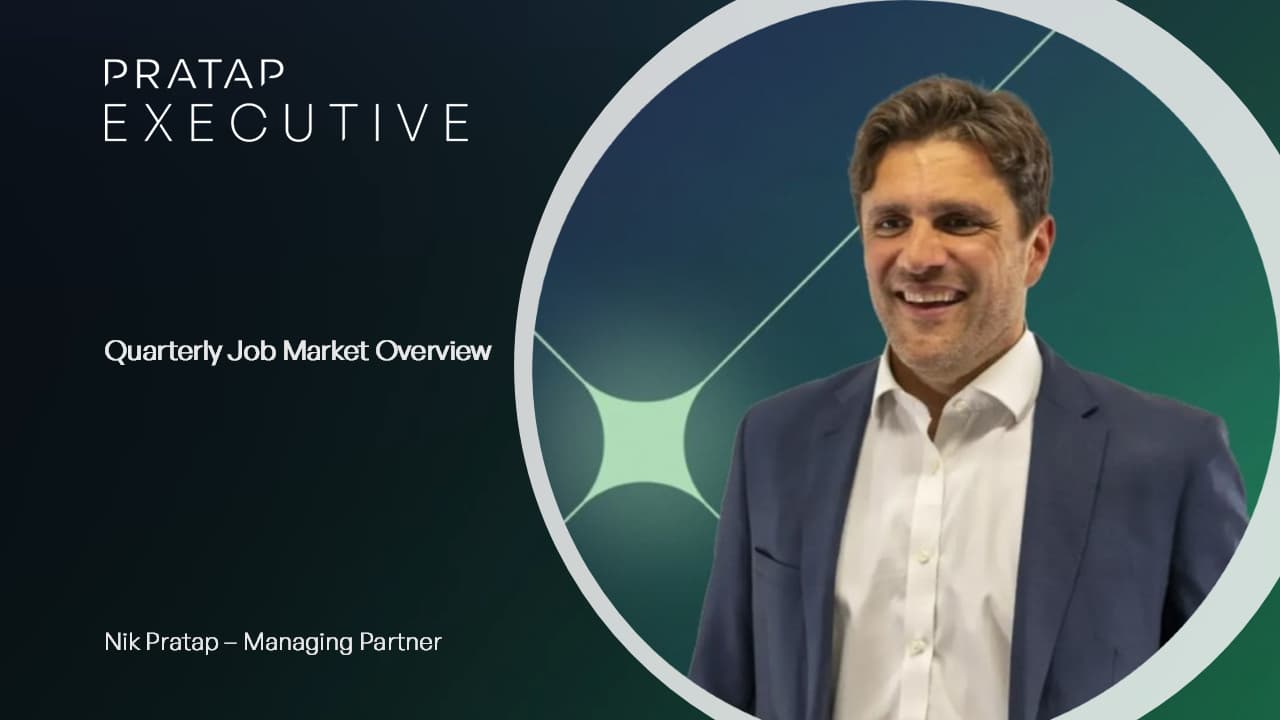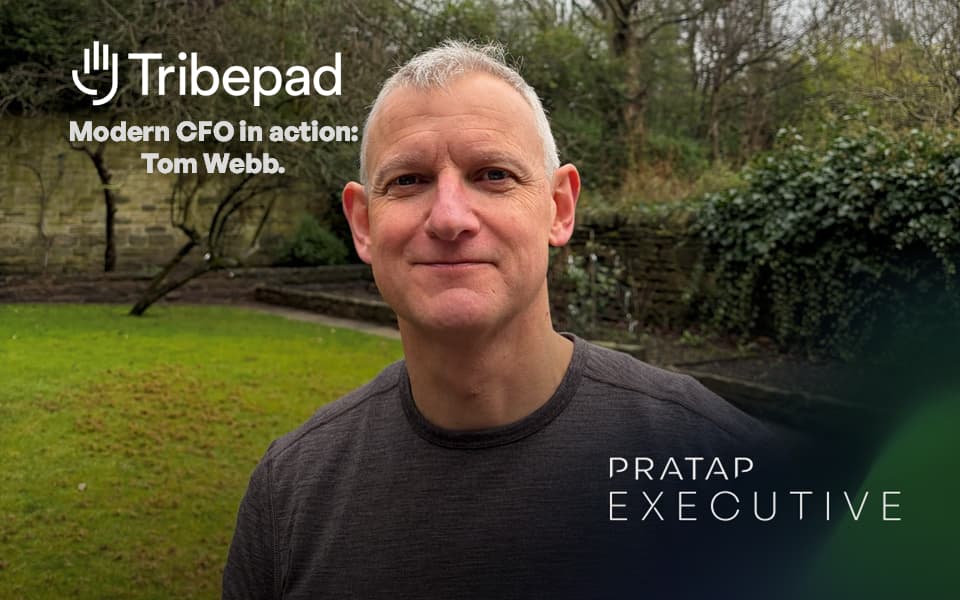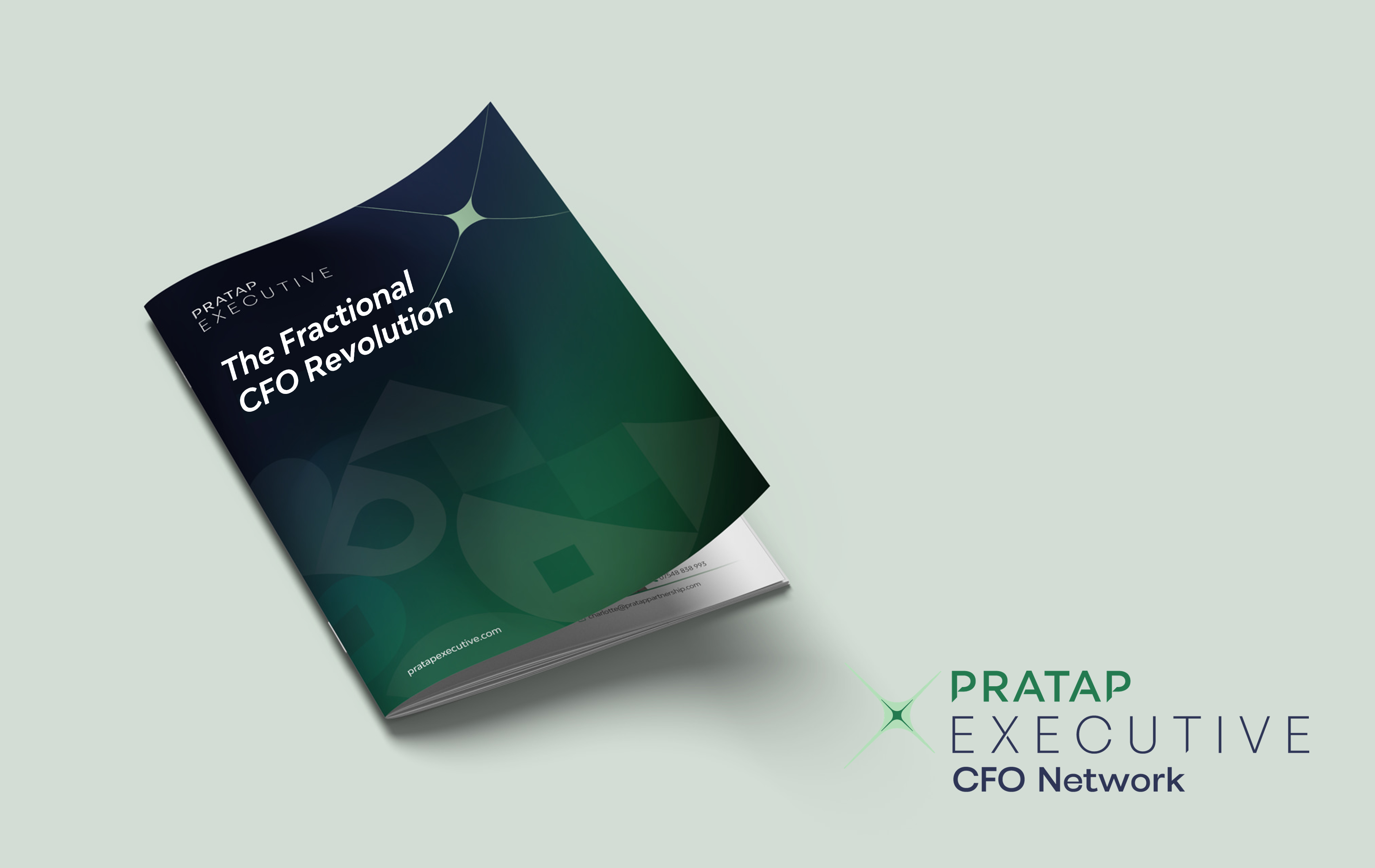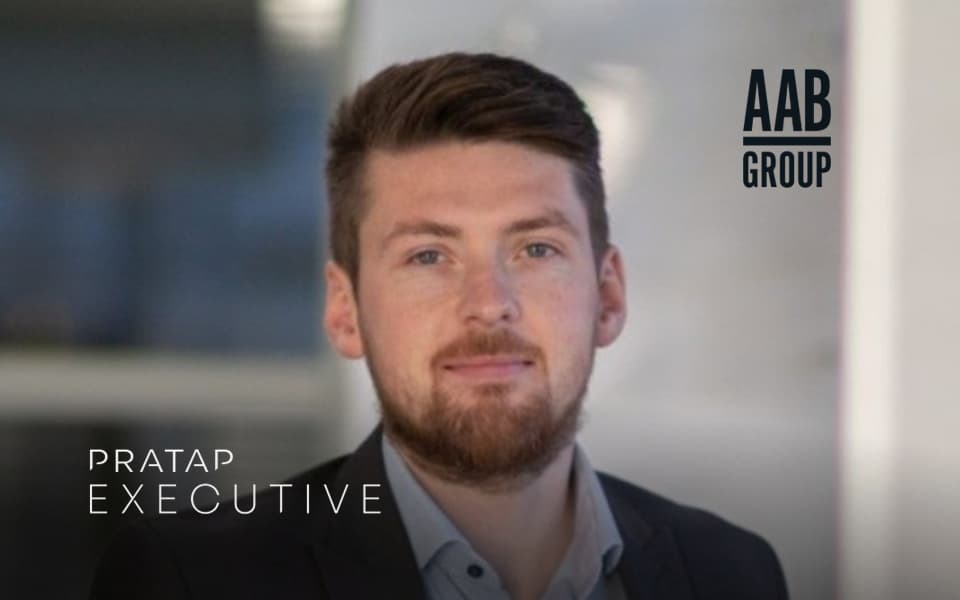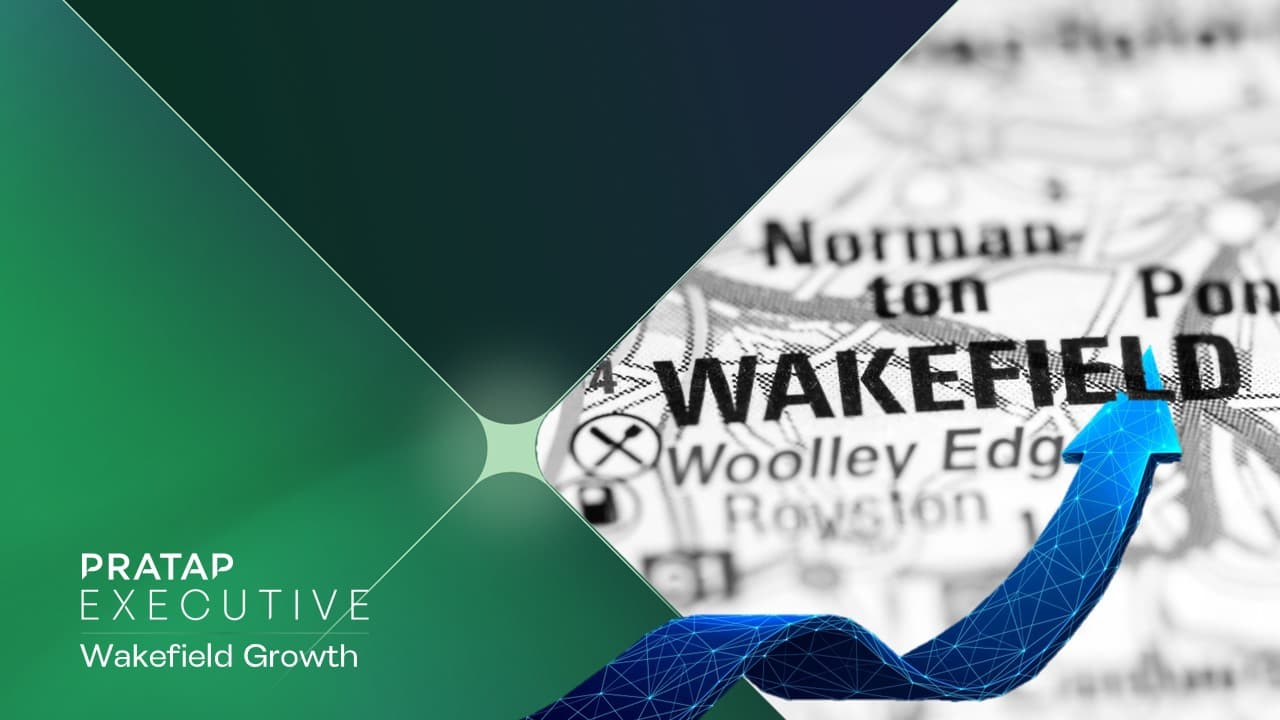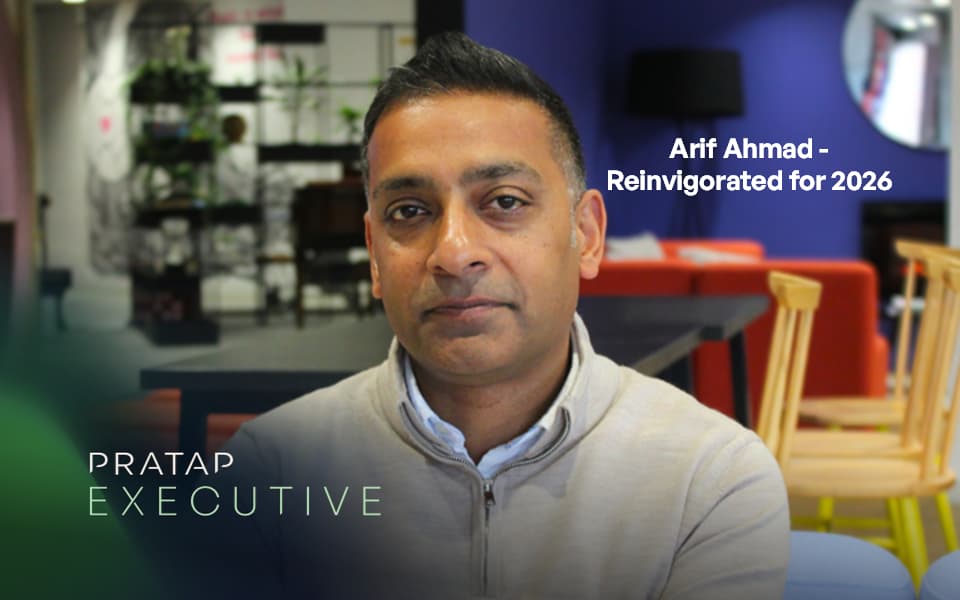A Strategic Perspective on Finance and Growth: Karl Wilcockson, Henry Boot PLC
Karl Wilcockson, Finance Director for Property Investment & Development at Henry Boot PLC, shares insights into his career journey, leadership philosophy, and the evolving role of finance in driving strategic growth within one of the UK’s most established property and construction companies.
A Strategic Perspective on Finance and Growth: Karl Wilcockson, Henry Boot PLC
Karl Wilcockson, Finance Director for Property Investment & Development at Henry Boot PLC, shares insights into his career journey, leadership philosophy, and the evolving role of finance in driving strategic growth within one of the UK’s most established property and construction companies.

Karl Wilcockson joined Henry Boot in 2020 as Senior Accountant and was promoted to Financial Controller in July 2022, followed by a further promotion to Finance Director – Property Investment and Development in January 2025. He previously spent 8+ years at PwC, rising to Senior Manager, and is a qualified ACA. Karl sits on the HBD Strategic and Operations Boards and leads financial matters across the property investment and development division.
Henry Boot is one of the UK’s longest-established land, property, and construction firms, headquartered in Sheffield, employing over 400 people. The business is known for its strong values, progressive culture, focus on sustainability, and deep regional roots in South Yorkshire.
From PwC to Henry Boot — What motivated your transition from a Big Four firm to an in-house role, and how has that move shaped your leadership and strategic thinking as Finance Director?
There were two main drivers. Firstly, I have a young family and when I was at PwC and considering my next steps, I felt that my short-term and long-term futures were better suited to a role I could shape in industry as opposed to continuing in practice, where, whilst you can be flexible, there are times when travel and working patterns are non-negotiable.
The second reason was I wanted to broaden my experience in the commercial world. I have always had a desire to be ‘in the thick of it’ actually running a business, and felt the best way to experience this while improving my strategic thinking and commercial acumen would be through an industry move. I can happily say I’ve been in the thick of it through my time at Henry Boot! I was also drawn to the property sector from my experiences at PwC and the move has not disappointed from a variety perspective. It’s a cliché, but each day is different as the deals we complete and corporate structures we use all provide unique challenges.
I have worked with many excellent leaders at Henry Boot who have helped me develop different skills and ways of thinking. Everyone leads in their own way, but for me, I place a high value on creating an environment where people feel set up for team success, are able to openly challenge myself and each other, and where pride is taken in the quality of what we produce. To deliver on this, I see two things as key being 1. strong trusting relationships, and 2. we have to have a diversity of skill sets, strengths, and viewpoints from our people.
My mindset is that as a finance function, it is vital that we are close business partners for the commercial teams. We facilitate good decisions with our analysis and advice, and we are integrated to the extent that we become a key sounding board ahead of actions being taken. It is only by operating in this way that finance can really be value-add. Finance teams are also often in a unique position where we have access to a greater breadth of information than others which adds a weight of responsibility to the decisions we take and advice we give. At the same time as being business partners, we also have a key responsibility to keep everyone and the company safe, operating with a strong control environment, and ensuring short- and long-term financial stability. For that reason, I go full circle back to the environment we create for our team to deliver on all of this, and to the diversity in skills we need in order to do so.
You've been with Henry Boot for over five years, during which the company has undergone significant transformation- how have you seen the culture and priorities shift, especially with the move to the new Isaacs Building HQ?
Henry Boot has a proud history and strong foundations. Over the past five years we have built (literally and figuratively!) on the past and there have been changes as a part of this. I would say we have become more focused and strategic as a company. In late 2023, we transitioned from the historic Banner Cross Hall to new, state-of-the-art premises in Sheffield’s city centre. This change has been very positive, and provides everyone with a first-class office space to work in and one which reflects the company’s commitment to its people. Then in 2024, the group underwent a major rebrand where we not only implemented new external visuals, but colleagues from across the organisation played a key role in shaping our renewed employee value proposition. This collaborative approach again reflects our commitment to putting people first and doing the right thing. Both our internal and external messaging now honour the company’s long-standing heritage while helping us look ahead, supporting our ambition to drive sustainable, meaningful change.
Henry Boot is widely regarded as an employer of choice in South Yorkshire. In your view, what sets the company apart in terms of employee engagement, development, and long-term retention?
Henry Boot is a special place to work, and I think it always will be. There is pride in being part of such a successful and historic company, and this alone is rare. I think our retention rates are so good because of the working environment we create. Yes, the office is great, and the employment package is attractive, but we also have great people who care for each other as colleagues and, in many cases, are good friends.
Employee engagement is excellent across the company. Our Hive survey scores (annual people survey) are consistently high and we want to maintain and improve them. One of our aims in finance for the immediate future is to set out a career development framework for our people to refer to. The idea is that it is positive to give our teams clarity and transparency on what career paths can look like, what skills and responsibilities we expect at each grade and, of course, what remuneration looks like as people progress. There are lots of initiatives like this which we put in place to ensure our employment offering doesn’t stand still and that we are able to give our people the careers they are looking for.
You’ve spoken about the finance team being 'exceptionally impactful' yet 'warm and social.' How have you fostered that balance within your leadership approach, and how does it contribute to Henry Boot’s overall success?
As I mentioned earlier, this really comes back to the importance we place on creating the right environment for our people to work in and the mindset we foster within the team.
Building this kind of environment isn’t something you can really force, it has to be organic and built over time. For me it’s really about how you deal with people. This is not something I try and be too conscious about. I just try to engage with people firstly on a human level, how I would like to be worked with, but secondly I try to recognise and respect different working styles. Again it’s relatively obvious, but some people find clarity in directness, whereas others prefer space and time to reflect, so I try to be aware of this in my own leadership.
When it comes to mindset and being impactful, we often talk about having a growth mindset in our team. This is all about being open to change - embracing small, continuous improvements and identifying process efficiencies. There’s a great TED Talk by Matthew Syed that captures this idea brilliantly. It’s inspired our team to keep evolving, always looking for ways to improve what we deliver for the business.
What have been some of the most rewarding or surprising aspects of sitting on the HBD Strategic and Operations Boards — and how do those roles influence the company’s wider development strategy?
Being part of the Strategic and Operations board meetings has been very rewarding. I have learnt a great deal from everyone I work with on those boards. One thing that is clearer to me now than ever is the value of differences in personalities, backgrounds and styles of each individual in these meetings. It’s vital to have debate and challenge in the board meetings. Often, it can be the curveball question from a colleague with a different perspective to others which helps to shape conclusions and ultimately provide confidence in the decisions we take.
In terms of rewarding and surprising aspects of the role, workforce planning is an example of something I have worked with the Operations Board, which under normal circumstances would probably not drop into the remit of a finance person. As the board were working on this project, it became clear that I could play a part and so spent time developing a workforce planning model which has foundations in our medium-term KPIs, and looks at what the HBD workforce of the future may need to look like. This was really rewarding and interesting to be a part of. So it’s not all financial statements for me! Adaptability for scenarios like this becomes increasingly important.
Looking ahead, what aspirations do you have for your career at Henry Boot, and where do you see the company — and its finance function — evolving in the next 3–5 years?
I’m now in my sixth year at Henry Boot, and each year has brought its own unique challenges and opportunities. I expect the years ahead will be no different. While it’s hard to predict precisely what the future holds, I’m keen to continue progressing within the business, especially as the company evolves.
The recent announcement about acquiring the remaining 50% of Stonebridge Homes over the next five years is a great example of that forward momentum. It opens exciting growth opportunities for the group, and the finance function will play a key role in supporting that success.
More broadly, we’re committed to continuously evolving our finance function. Like any strong business, we know we can’t afford to stand still. Embracing change is essential, and technology, particularly AI, will be a big part of that. While we don’t yet have all the answers, I’m excited to see how we can harness AI to drive efficiencies and add value across the board in the not-too-distant future.

